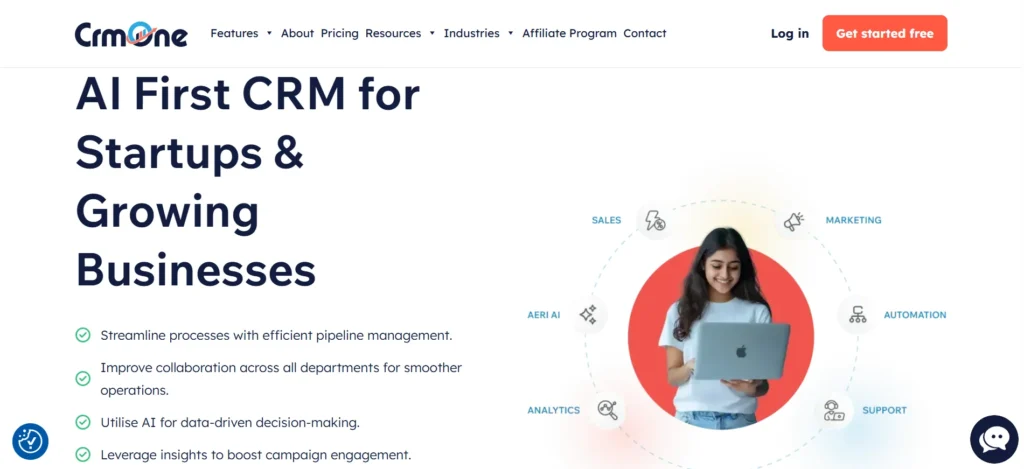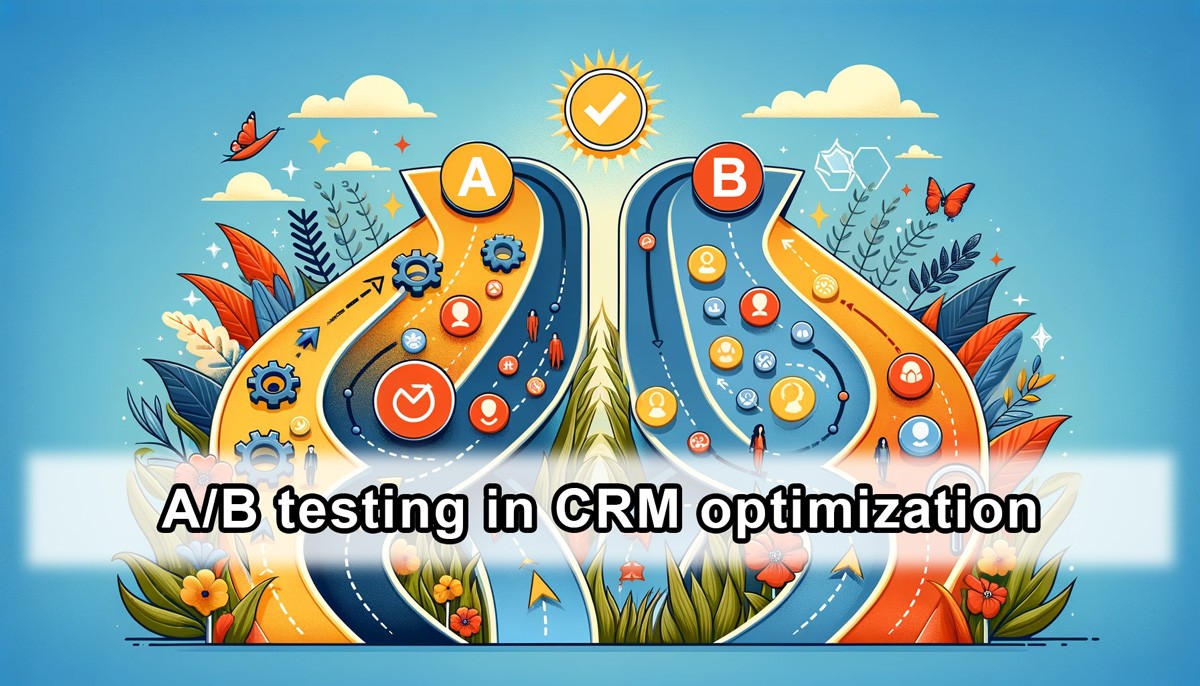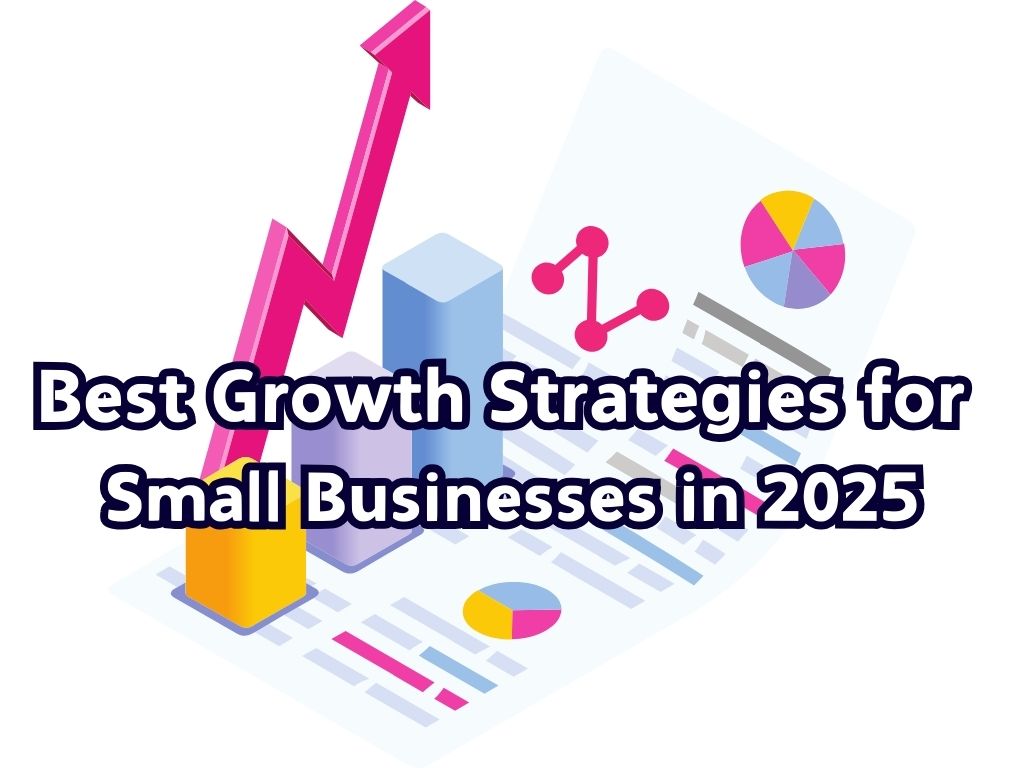Small Business CRM Updates 2025: Navigating the Future of Customer Relationship Management

Small Business CRM Updates 2025: Navigating the Future of Customer Relationship Management
The world of customer relationship management (CRM) is constantly evolving. For small businesses, staying ahead of the curve is crucial to maintaining a competitive edge, fostering customer loyalty, and driving sustainable growth. As we approach 2025, it’s time to examine the latest CRM updates and how they’ll impact small businesses. This comprehensive guide delves into the key trends, technological advancements, and strategic considerations that will shape the future of CRM for small enterprises.
The Rising Importance of CRM for Small Businesses
Before we dive into the specifics of upcoming updates, let’s reiterate why CRM is so vital for small businesses. In essence, CRM is more than just software; it’s a strategic approach to managing and analyzing customer interactions and data throughout the customer lifecycle. It enables businesses to:
- Improve Customer Relationships: By providing a centralized view of customer interactions, CRM helps businesses understand customer needs and preferences, leading to more personalized and satisfying experiences.
- Enhance Sales Productivity: CRM automates repetitive tasks, streamlines sales processes, and provides sales teams with the tools they need to close deals more efficiently.
- Boost Marketing Effectiveness: CRM enables targeted marketing campaigns, personalized messaging, and improved lead generation, resulting in higher conversion rates.
- Make Data-Driven Decisions: CRM provides valuable insights into customer behavior, sales performance, and marketing effectiveness, empowering businesses to make informed decisions.
- Increase Efficiency: Automation features within CRM systems can reduce manual data entry, streamline workflows, and free up employees to focus on more strategic initiatives.
In the dynamic landscape of 2025, the ability to adapt to evolving customer expectations and leverage technology will be paramount for small businesses. CRM is no longer a luxury; it’s a necessity.
Key CRM Trends Shaping 2025
Several key trends are poised to revolutionize the CRM landscape for small businesses in 2025. Understanding these trends is crucial for making informed decisions about CRM implementation and upgrades.
1. Artificial Intelligence (AI) and Machine Learning (ML) Integration
AI and ML are already making their mark on the CRM world, and their influence will only grow stronger in 2025. Small businesses can expect to see AI-powered features that:
- Predict Customer Behavior: AI algorithms can analyze customer data to predict future behavior, such as purchase patterns, churn risk, and product preferences.
- Automate Tasks: AI-powered chatbots can handle customer inquiries, schedule appointments, and provide basic support, freeing up human agents to focus on more complex issues.
- Personalize Customer Interactions: AI can analyze customer data to personalize marketing messages, product recommendations, and website content, leading to more engaging experiences.
- Improve Sales Forecasting: AI can analyze historical sales data to provide more accurate sales forecasts, helping businesses make informed decisions about inventory, staffing, and marketing spend.
For small businesses, the key is to find CRM solutions that offer easy-to-use AI features that integrate seamlessly with existing workflows. It’s not about replacing human interaction but augmenting it with intelligent insights and automation.
2. Enhanced Mobile CRM Capabilities
The modern workforce is increasingly mobile, and CRM systems must adapt to accommodate this trend. In 2025, we can expect to see:
- More Robust Mobile Apps: CRM providers will continue to enhance their mobile apps, offering a full suite of features and functionalities accessible from smartphones and tablets.
- Offline Access: Mobile CRM apps will offer improved offline access, allowing sales teams to access and update customer data even without an internet connection.
- Location-Based Services: CRM systems will integrate with location-based services to track sales reps’ activities, provide location-specific insights, and offer targeted marketing opportunities.
- Voice-Activated Commands: Voice assistants will become more integrated with mobile CRM, allowing users to update records, schedule tasks, and access information using voice commands.
Mobile CRM empowers small businesses to stay connected with customers and manage their operations from anywhere, anytime. This increased flexibility can lead to greater efficiency and responsiveness.
3. Focus on Data Privacy and Security
With increasing concerns about data privacy and security, CRM providers will prioritize these areas in 2025. Small businesses can expect to see:
- Enhanced Data Encryption: CRM systems will offer robust encryption to protect customer data from unauthorized access.
- Compliance with Data Privacy Regulations: CRM providers will ensure their systems comply with data privacy regulations such as GDPR and CCPA.
- Improved User Authentication: Multi-factor authentication and other security measures will be implemented to protect against unauthorized access to CRM data.
- Transparency and Control: CRM systems will provide users with greater transparency and control over their data, allowing them to manage their privacy settings and consent preferences.
Data security and privacy are paramount. Small businesses must choose CRM solutions that prioritize these aspects to protect their customers’ data and maintain trust.
4. Integration with Emerging Technologies
CRM systems will increasingly integrate with emerging technologies to provide more comprehensive and streamlined customer experiences. This includes:
- Integration with IoT Devices: CRM systems will integrate with IoT devices to collect data from connected devices, such as smart home appliances and wearables, providing a more holistic view of customer behavior.
- Blockchain Integration: Blockchain technology can be used to secure customer data and provide greater transparency in customer interactions.
- Virtual and Augmented Reality: CRM systems will integrate with VR and AR technologies to create immersive customer experiences, such as virtual product demonstrations and interactive training sessions.
- Seamless API Integrations: CRM systems will offer seamless integrations with various other business tools, such as marketing automation platforms, e-commerce platforms, and accounting software, to create a unified ecosystem.
By embracing these integrations, small businesses can unlock new opportunities to improve customer engagement, streamline processes, and gain a competitive advantage.
Key CRM Updates for Small Businesses in 2025
Let’s take a closer look at specific CRM updates that small businesses can expect to see in 2025. These updates will address the evolving needs of small businesses and help them thrive in a competitive market.
1. Enhanced User Experience (UX) and User Interface (UI)
CRM providers will prioritize user experience in 2025. This means:
- Intuitive Interfaces: CRM systems will feature more intuitive interfaces, making it easier for users to navigate and access the information they need.
- Customizable Dashboards: Users will have greater control over their dashboards, allowing them to customize the information they see and the way it’s displayed.
- Improved Reporting and Analytics: CRM systems will offer enhanced reporting and analytics capabilities, providing users with deeper insights into their customer data.
- Gamification: CRM providers will incorporate gamification elements, such as leaderboards and badges, to motivate users and encourage them to engage with the system.
A user-friendly CRM system can significantly improve user adoption rates and productivity. By focusing on UX and UI, CRM providers are making their systems more accessible and valuable for small businesses.
2. Advanced Automation Capabilities
Automation will continue to be a major focus in 2025. Small businesses can expect to see:
- Workflow Automation: CRM systems will offer more advanced workflow automation capabilities, allowing businesses to automate complex processes, such as lead nurturing, sales follow-up, and customer onboarding.
- AI-Powered Automation: AI will power automation features, enabling systems to automatically perform tasks, such as data entry, lead scoring, and email marketing.
- Integration with Marketing Automation Platforms: CRM systems will seamlessly integrate with marketing automation platforms, allowing businesses to create and manage automated marketing campaigns.
- Customizable Automation Rules: Users will have greater control over automation rules, allowing them to tailor the system to their specific needs.
Automation saves time, reduces errors, and frees up employees to focus on more strategic initiatives. Advanced automation capabilities are essential for small businesses looking to improve efficiency and productivity.
3. Strengthened Sales Force Automation (SFA) Features
SFA will continue to be a core component of CRM systems in 2025. Expect to see:
- Improved Lead Management: SFA features will include enhanced lead scoring, lead routing, and lead nurturing capabilities.
- Sales Pipeline Management: CRM systems will offer more robust sales pipeline management tools, allowing businesses to track their sales opportunities and forecast sales revenue more accurately.
- Sales Forecasting: AI-powered sales forecasting tools will provide more accurate sales predictions, helping businesses make informed decisions.
- Mobile Sales Tools: SFA features will be fully integrated with mobile CRM apps, allowing sales teams to access and update information on the go.
SFA empowers sales teams to close deals more efficiently, improve sales performance, and drive revenue growth. Strengthening these features will be key for CRM providers.
4. Enhanced Customer Service and Support Features
Customer service is a critical aspect of any business, and CRM systems will offer enhanced features to support customer service teams:
- Omnichannel Support: CRM systems will support omnichannel customer service, allowing businesses to communicate with customers through various channels, such as email, phone, live chat, and social media.
- AI-Powered Chatbots: AI-powered chatbots will handle customer inquiries, provide self-service support, and escalate complex issues to human agents.
- Knowledge Base Integration: CRM systems will integrate with knowledge bases, allowing customer service agents to quickly access information and provide accurate answers to customer questions.
- Personalized Customer Service: CRM systems will provide customer service agents with a complete view of customer interactions, enabling them to provide personalized support.
Excellent customer service builds customer loyalty and drives repeat business. Enhanced customer service features are essential for small businesses looking to provide exceptional customer experiences.
5. Increased Focus on Integrations
CRM systems will become even more integrated with other business tools in 2025, including:
- Marketing Automation Platforms: Seamless integration will allow businesses to create and manage automated marketing campaigns, track leads, and measure marketing ROI.
- E-commerce Platforms: Integration with e-commerce platforms will allow businesses to track customer purchases, manage orders, and provide personalized product recommendations.
- Accounting Software: Integration with accounting software will allow businesses to track financial data, manage invoices, and generate reports.
- Social Media Platforms: CRM systems will integrate with social media platforms, allowing businesses to monitor social media activity, engage with customers, and manage their social media presence.
Seamless integrations streamline workflows, improve data accuracy, and provide a more holistic view of the customer journey. This is a key area for CRM development.
Choosing the Right CRM for Your Small Business in 2025
Selecting the right CRM system is a crucial decision for any small business. Here’s how to choose the best CRM solution in 2025:
1. Define Your Needs
Before you start evaluating CRM systems, it’s essential to define your business needs. Consider:
- Your business goals: What do you want to achieve with CRM? (e.g., increase sales, improve customer retention, streamline marketing).
- Your target audience: Who are your customers, and what are their needs?
- Your current processes: How do you currently manage customer relationships?
- Your budget: How much are you willing to spend on a CRM system?
- Your team’s technical skills: Does your team have the technical expertise to implement and manage a complex CRM system?
Understanding your needs will help you narrow down your options and choose a CRM system that’s the right fit for your business.
2. Research CRM Providers
Once you’ve defined your needs, it’s time to research CRM providers. Consider:
- CRM features: Does the system offer the features you need?
- Ease of use: Is the system easy to use and navigate?
- Integrations: Does the system integrate with your existing business tools?
- Pricing: Is the pricing affordable and transparent?
- Customer support: Does the provider offer good customer support?
- Reviews and testimonials: What do other users say about the system?
Researching CRM providers will help you identify the best options for your business.
3. Consider Cloud-Based CRM
Cloud-based CRM systems offer several advantages for small businesses, including:
- Lower upfront costs: Cloud-based systems typically require a subscription fee, which is more affordable than purchasing and maintaining on-premise software.
- Easy implementation: Cloud-based systems are typically easy to implement and require minimal IT expertise.
- Accessibility: Cloud-based systems can be accessed from anywhere with an internet connection.
- Automatic updates: Cloud-based systems are automatically updated, so you always have the latest features and security patches.
- Scalability: Cloud-based systems can be easily scaled to meet the changing needs of your business.
Cloud-based CRM is often the best choice for small businesses due to its affordability, ease of use, and scalability.
4. Evaluate AI Capabilities
As AI becomes more prevalent in CRM, evaluate the AI capabilities of the systems you’re considering. Look for features such as:
- Predictive analytics: Can the system predict customer behavior and sales trends?
- Automated tasks: Does the system automate repetitive tasks, such as data entry and lead scoring?
- Personalized experiences: Can the system personalize customer interactions?
AI can significantly improve the efficiency and effectiveness of your CRM system. Choosing a system with strong AI capabilities can give you a competitive advantage.
5. Prioritize Data Security and Privacy
Data security and privacy are paramount. Ensure the CRM system you choose:
- Complies with data privacy regulations: (e.g., GDPR, CCPA).
- Offers robust encryption: To protect customer data.
- Provides multi-factor authentication: For secure user access.
- Offers data backup and recovery: In case of data loss.
Choosing a CRM system that prioritizes data security and privacy is crucial to protect your customers’ data and maintain trust.
6. Get a Demo and Try a Free Trial
Before making a final decision, get a demo of the CRM system and try a free trial. This will allow you to:
- See the system in action: Get a firsthand look at the system’s features and functionalities.
- Test the user interface: See how easy the system is to use.
- Evaluate the integrations: See how the system integrates with your other business tools.
- Get feedback from your team: Get input from your team on the system’s usability and features.
A demo and free trial will help you determine if the CRM system is the right fit for your business.
The Future is Now: Embrace CRM in 2025
The CRM landscape is constantly changing, and small businesses must adapt to stay competitive. By embracing the latest CRM updates, small businesses can improve customer relationships, streamline sales processes, boost marketing effectiveness, and make data-driven decisions.
In 2025, the integration of AI, enhanced mobile capabilities, a focus on data privacy, and seamless integrations will be essential for small businesses. By choosing the right CRM system and leveraging its features, small businesses can drive growth and achieve long-term success.
Investing in a modern CRM system is not just a good business practice; it’s a strategic imperative. Start planning your CRM strategy for 2025 today to ensure your business is ready for the future of customer relationship management.



